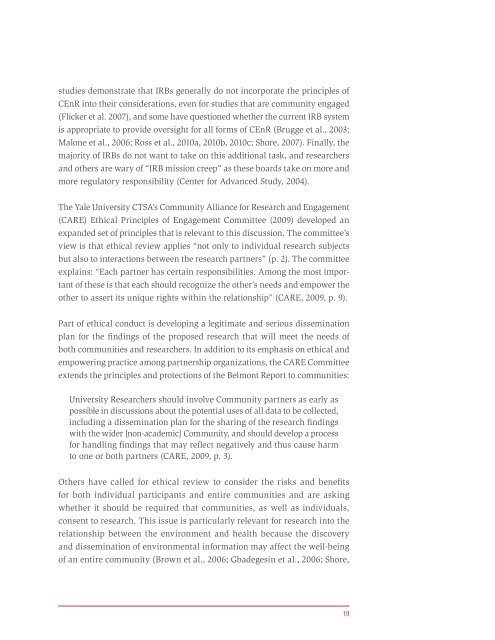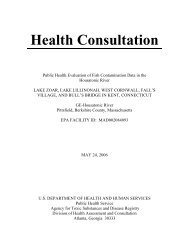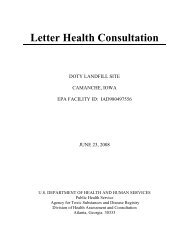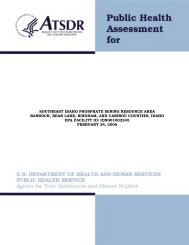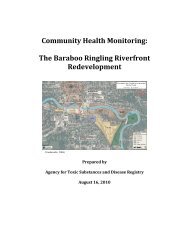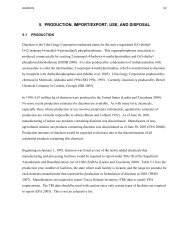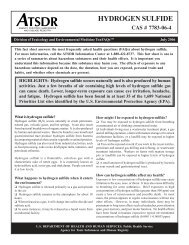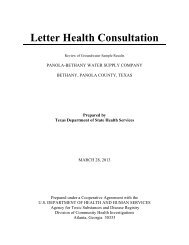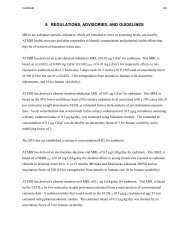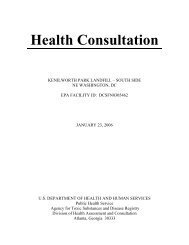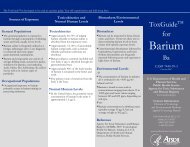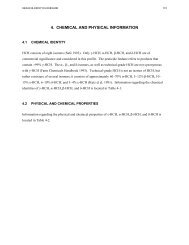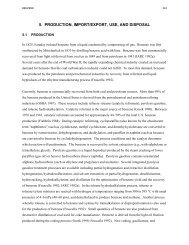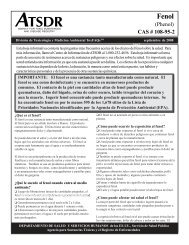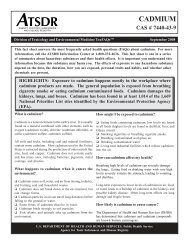Principles of Community Engagement (Second Edition)
Principles of Community Engagement (Second Edition)
Principles of Community Engagement (Second Edition)
You also want an ePaper? Increase the reach of your titles
YUMPU automatically turns print PDFs into web optimized ePapers that Google loves.
studies demonstrate that IRBs generally do not incorporate the principles <strong>of</strong><br />
CEnR into their considerations, even for studies that are community engaged<br />
(Flicker et al 2007), and some have questioned whether the current IRB system<br />
is appropriate to provide oversight for all forms <strong>of</strong> CEnR (Brugge et al , 2003;<br />
Malone et al , 2006; Ross et al , 2010a, 2010b, 2010c; Shore, 2007) Finally, the<br />
majority <strong>of</strong> IRBs do not want to take on this additional task, and researchers<br />
and others are wary <strong>of</strong> “IRB mission creep” as these boards take on more and<br />
more regulatory responsibility (Center for Advanced Study, 2004)<br />
The Yale University CTSA’s <strong>Community</strong> Alliance for Research and <strong>Engagement</strong><br />
(CARE) Ethical <strong>Principles</strong> <strong>of</strong> <strong>Engagement</strong> Committee (2009) developed an<br />
expanded set <strong>of</strong> principles that is relevant to this discussion The committee’s<br />
view is that ethical review applies “not only to individual research subjects<br />
but also to interactions between the research partners” (p 2) The committee<br />
explains: “Each partner has certain responsibilities Among the most important<br />
<strong>of</strong> these is that each should recognize the other’s needs and empower the<br />
other to assert its unique rights within the relationship” (CARE, 2009, p 9)<br />
Part <strong>of</strong> ethical conduct is developing a legitimate and serious dissemination<br />
plan for the findings <strong>of</strong> the proposed research that will meet the needs <strong>of</strong><br />
both communities and researchers In addition to its emphasis on ethical and<br />
empowering practice among partnership organizations, the CARE Committee<br />
extends the principles and protections <strong>of</strong> the Belmont Report to communities:<br />
University Researchers should involve <strong>Community</strong> partners as early as<br />
possible in discussions about the potential uses <strong>of</strong> all data to be collected,<br />
including a dissemination plan for the sharing <strong>of</strong> the research findings<br />
with the wider [non-academic] <strong>Community</strong>, and should develop a process<br />
for handling findings that may reflect negatively and thus cause harm<br />
to one or both partners (CARE, 2009, p 3)<br />
Others have called for ethical review to consider the risks and benefits<br />
for both individual participants and entire communities and are asking<br />
whether it should be required that communities, as well as individuals,<br />
consent to research This issue is particularly relevant for research into the<br />
relationship between the environment and health because the discovery<br />
and dissemination <strong>of</strong> environmental information may affect the well-being<br />
<strong>of</strong> an entire community (Brown et al , 2006; Gbadegesin et al , 2006; Shore,<br />
19


